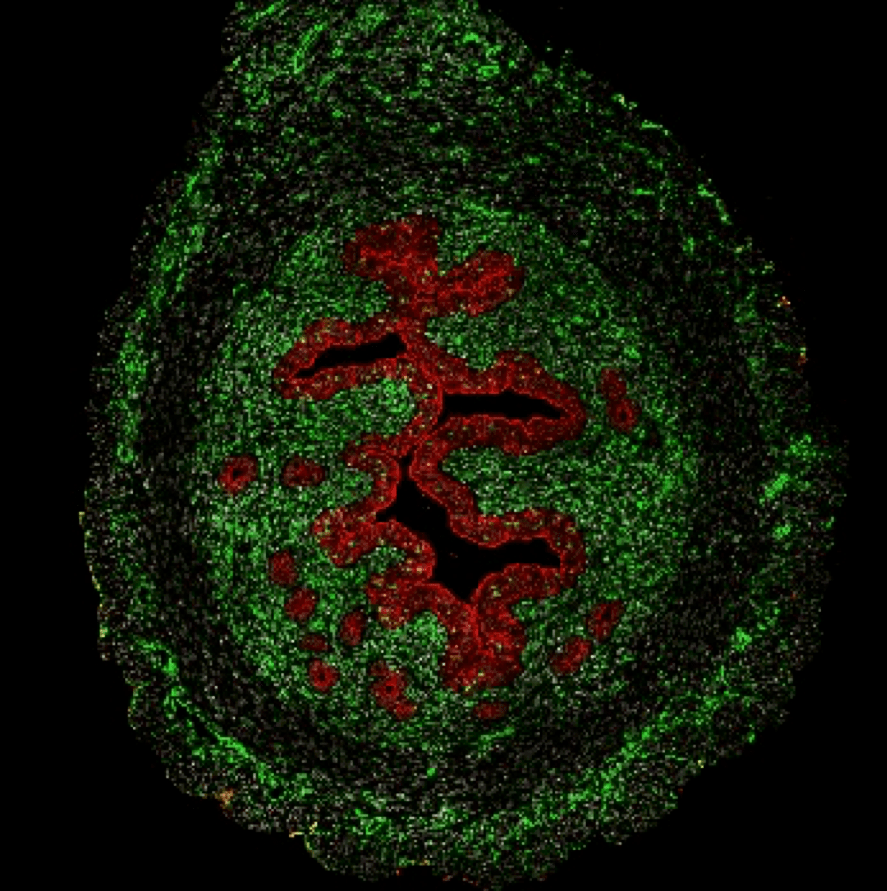The endometrium is the mucosal lining of the uterus that is composed of stromal and epithelial cells and undergoes 400-500 cycles of proliferation, differentiation and menstrual breakdown throughout a woman’s lifespan. The endometrial tissue’s capacity for self-renewal is attributed to the presence of stem cells. Using mouse models, innovative primary-derived 3D-organoids and 2D-stromal cells from human endometrial tissues, our goal is to unravel the signals which prepare the endometrium for pregnancy by controlling epithelial cell remodeling, stromal cell differentiation, and regeneration. This knowledge holds potential to address disease that affect the endometrium, such as endometriosis, endometrial cancer, menstrual disorders and infertility.

